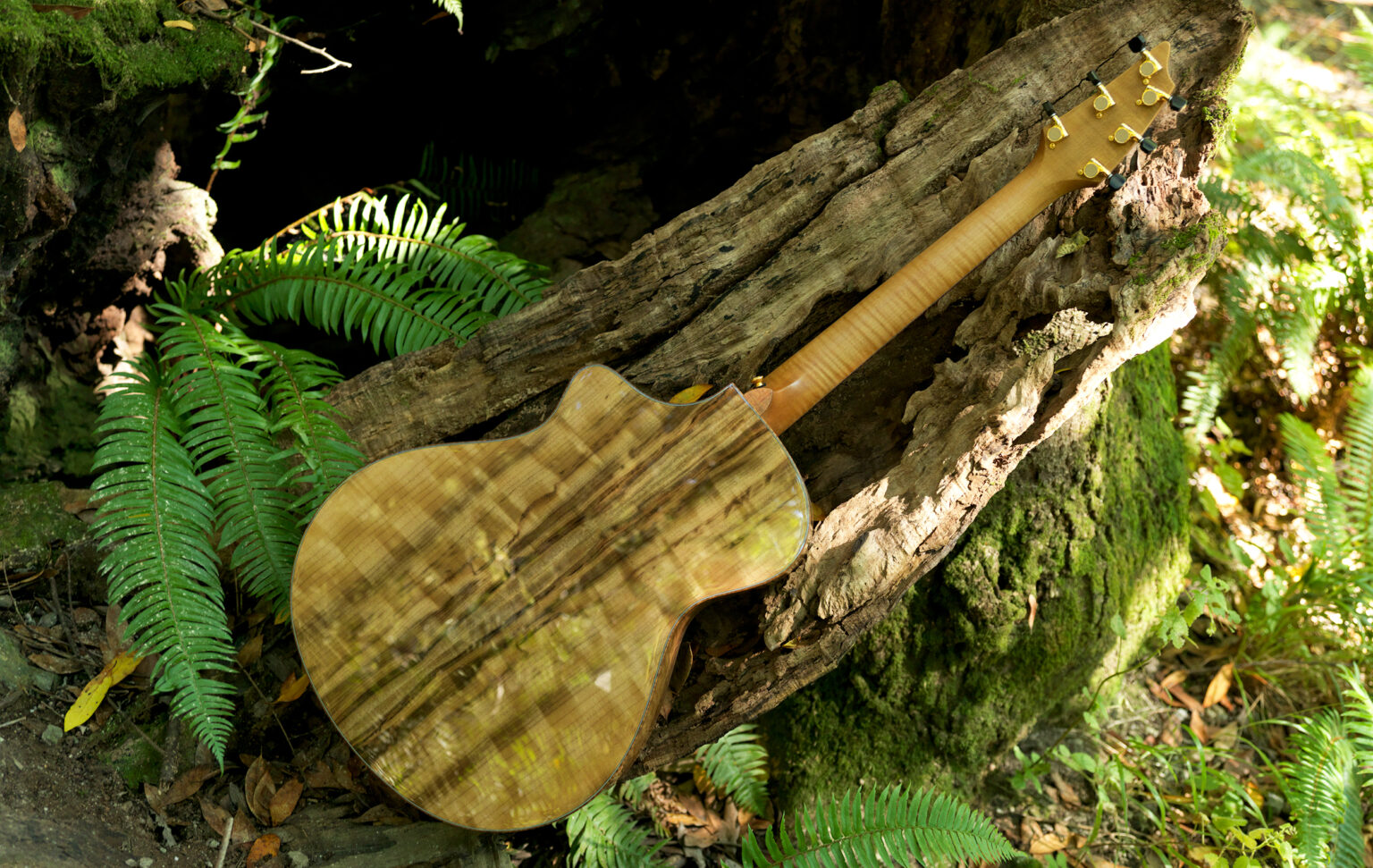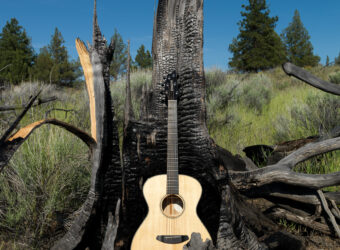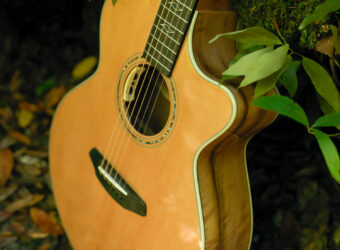
Rethinking Wood
We spend a lot of time thinking about the tonewood we use to build guitars. We think about its tonal properties, its strength and rigidity, its look and feel. We recognize that each piece of tonewood has individual attributes and developed our Sound Optimization process to maximize the unique musical potential of every board.
Beyond understanding how to turn what was once a living tree into an aesthetically beautiful and tonally balanced musical instrument, we think a great deal about where our tonewood comes from. We’re very proud to be the world’s first instrument manufacturer to eliminate clear cut wood from every guitar we build, but that’s not sufficient. See, there’s a difference between doing no harm and actually doing good. We don’t want our guitars to be less destructive to forest ecosystems, we want them to help revitalize and regenerate those ecosystems.
Planting Trees is Good, Right?
If forests are the “lungs of the planet,” as our friend Jeff Bridges likes to say, and forests are made up of trees, then we just need to plant more trees. Planting more trees should increase our planet’s respiratory capacity. Right?
Unfortunately, it’s not that simple. Forests are not just groups of individual trees standing close to each other. Forests are complex, interconnected systems of life. They are whole ecosystems. Think about it, when you walk beneath a forest canopy, what do you see? Do you see hegemonic rows of one single species and age-class of tree replicated for miles and miles? Or, do you see a wide variety of different trees, shrubs, grasses, ferns, mosses, and other flora all collectively supporting a vast network of interdependent life?
That was a rhetorical question.
The Problems with Tree Farms
Tree farms are a great idea in theory. In practice, however, not so much. Tree farms do not replicate natural forests. Like all other industrial monoculture, most tree farms just plant acres and acres of identical trees across land that’s been cleared and stripped for that purpose. In some cases, non-native tree species are introduced to landscapes where they don’t naturally exist, significantly disrupting the balance of the forest. In others, tree farms are planted on land that doesn’t naturally grow trees. This process, called afforestation, can have incredibly destructive consequences for the landscape and its inhabitants.
The situation is well explained in this article from the journal Trends in Plant Science:
The world’s area of tree plantations is constantly rising and, considering the high rate of natural forest loss, they may represent 20% of the total tree cover at the end of this century. Although often meant to restore degraded landscapes and improve local biodiversity as well as soil quality and carbon stocks, tree plantations have frequently replaced natural habitats of high conservation value, contributing to biodiversity loss, soil erosion, drought, and megafires…Despite their potential contribution, we still lack a complete understanding of how to make tree plantations ecologically sound.
Not all tree farms are created equal. Some forest plantations value ecological diversity, soil health, and sound regenerative agricultural practices. The problem is that, as consumers, we rarely know what we’re getting. Just because a company says their wood is “sustainable” doesn’t mean that it’s actually contributing to global forest health.
Our Wood is Different
We source every board of tonewood that goes into Breedlove guitars from suppliers who selectively harvest natural trees from functional forests. In short, that means all the wood we use in our guitars comes from trees that were removed from their native habitats because they were either already dead, dying, or could be thinned out to improve the surrounding forest health. We don’t use trees that were planted as monocultural crops for harvest. We don’t use trees from tree farms. When you buy a Breedlove, you can feel absolutely confident that your guitar sounds incredible, looks beautiful, and comes from a forest that’s being managed for the long-term health of our global ecosystems.


